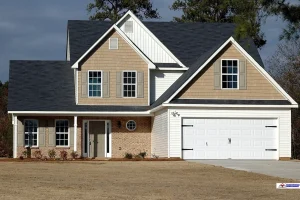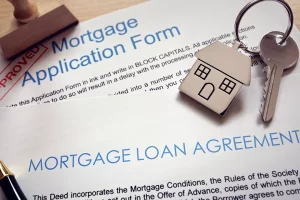
Jeff Greene, a billionaire investor and real estate magnate paints a grim picture of the US economy. He predicts a downturn, anticipating a significant fall in house prices. Greene's concerns stem from the Federal Reserve's rate hikes, which he believes will pose severe challenges to several sectors.
A Rollercoaster Ride to Recession?
Greene likens the government's and central banks' massive spending during the pandemic to a rollercoaster climbing extreme heights. He is particularly critical of the Federal Reserve's strategy of pumping money into the economy amidst worker shortages and rising raw material prices. The rapid increase in interest rates from near-zero to more than 5% since last spring, in response to historic inflation, has also drawn Greene's ire.
The billionaire investor warns that the repercussions of these actions will hit some industries hard. He foresees a potential drying up of Wall Street deal flows and construction projects as liquidity are drained from the system.
Rate Hikes: Not All Sectors Are Created Equal
While sectors like healthcare, education, and government might remain relatively unscathed, Greene anticipates that commercial real estate and investment banking will bear the brunt of the rate hikes. This is largely due to their reliance on debt-fueled investments, which become significantly costlier in a high-interest-rate environment. As borrowing costs rise, even the wealthiest banker in Asia might find it challenging to sustain aggressive growth strategies without reassessing risk profiles. Consequently, we could witness a reshaping of financial priorities within these industries in response to the tightened monetary policies.
Greene, who made a fortune betting against the mid-2000s housing bubble, also highlights the impact of higher borrowing costs on house prices. “People can't qualify for mortgages anymore,” he says, indicating a shift from rampant buying and bidding wars to a state of paralysis in the housing market due to rising rates.
A Bleak Outlook for the Housing Market
According to Greene, sellers contemplate price cuts after receiving no offers, and buyers are hesitant about paying significantly higher mortgage rates. He believes that unless rates decrease soon, forced sellers will have to accept lower prices, leading to a decline in house prices.
Tiny Homes Could Be a Solution to the Growing Housing Crisis
As the housing crisis continues to worsen across the United States, people are searching for alternative solutions to address the shortage of affordable housing. One potential solution gaining popularity is the construction of tiny homes, including backyard homes, in-law suites, and tiny homes.
In Hawaii, where the housing crisis is particularly severe, building more small homes could be a cost-effective way to increase the housing supply. According to Civil Beat, constructing more small homes on existing properties could provide more affordable housing options for families and individuals struggling to find a place to live.
Similarly, in Washtenaw County, Michigan, some farmers are advocating for tiny homes as an affordable and sustainable solution to the housing crisis in rural areas. However, local zoning laws often prohibit the construction of tiny houses, making it challenging for residents to pursue this option.
Despite some of the challenges associated with tiny homes, such as a lack of regulation and potential safety concerns, the trend continues to gain popularity nationwide. Many people downsize to smaller, more affordable homes to simplify their lives, reduce their environmental impact, and save money.
While some critics argue that tiny homes are not a viable solution to the housing crisis, others believe they could be part of a more comprehensive solution to the problem. With proper regulation and planning, tiny homes could offer an innovative and cost-effective solution to the housing crisis in many areas.
Tiny homes could be a promising solution to the growing housing crisis. However, addressing the challenges and concerns associated with this trend is essential to ensure that it is a safe and effective option for those needing affordable housing.
For more detailed insights from Greene, please look at the original article.

James Smith is our editor. He is an accomplished and versatile news writer with over a decade of experience covering a wide range of topics, including politics, business, and real estate. Throughout his career, James has been dedicated to uncovering the truth and presenting unbiased, factual reporting to his audience.














